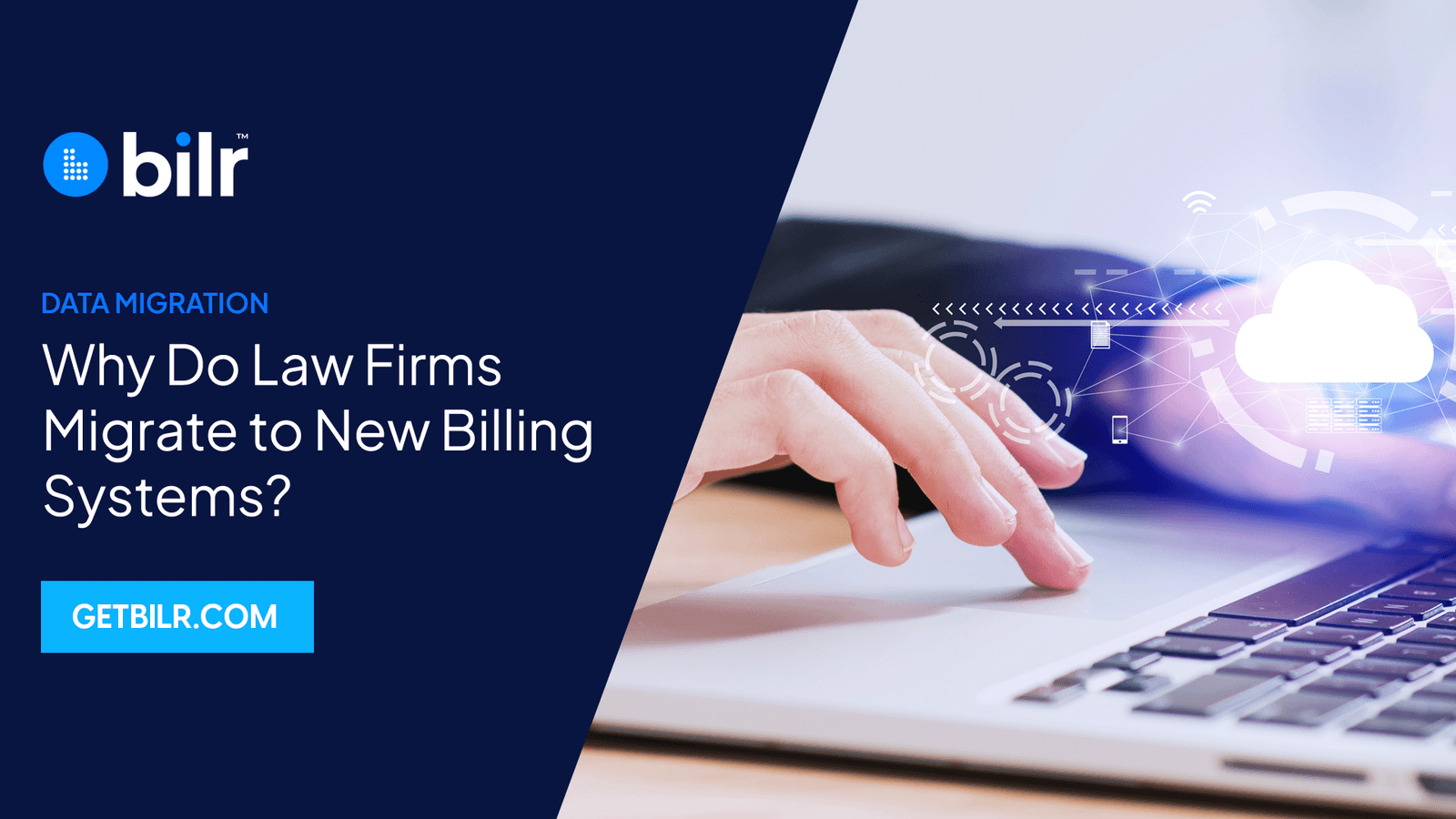Why Do Law Firms Migrate to New Billing Systems?
One of the most significant drivers is the advancement in legal technology. As new software solutions offer more robust features, better security and improved user experiences, law firms find it essential to upgrade from their legacy systems.
Another key reason is the necessity to comply with evolving regulatory standards. By migrating to a modern system, firms can ensure they meet these legal requirements, thereby better protecting sensitive client information and avoiding costly penalties.
Lastly, client expectations are continually rising, with many demanding more transparency and quicker responses from their legal representatives. By migrating to an advanced billing and time-keeping software, law firms can provide detailed, accurate billing statements and timely updates.
How to create a data migration plan
- Assess Current Data Landscape
- Identify all relevant data sets and systems.
- Determine data volume, complexity, and quality.
- Analyze potential risks and challenges. Remove or reduce probable issues.
- Set Clear Objectives and Timeline
- Define the goals and objectives of the migration.
- Establish a realistic, achievable timeline for the entire process.
- Break down tasks into manageable milestones.
- Identify the team tasked with responsibility for migration.
- Choose Migration Method and Tools
- Select the appropriate migration method (automated or hybrid).
- Choose migration tools or software that best fit your needs and budget.
- Ensure compatibility and scalability with existing systems.
- Prioritize Data Security and Compliance
- Implement robust security measures to protect sensitive data during migration.
- Ensure compliance with relevant regulations(e.g., GDPR, HIPAA) throughout the process.
- Consider encryption, access controls, and data masking techniques as needed.
- Test Migration Plan Thoroughly
- Conduct pilot migrations with a subset of data to identify and mitigate potential issues.
- Test data integrity, accuracy, and functionality in the new environment.
- Develop and test rollback procedures in case of failure.
- Implement Contingency Measures
- Have contingency plans in place to address unforeseen challenges or disruptions.
- Identify alternative solutions and resources to minimize downtime.
- Ensure secure backup and recovery processes are in place to safeguard data integrity.
- Monitor and Evaluate Post-Migration
- Monitor the migration progress and performance in real-time.
- Conduct post-migration validation and testing to verify data integrity.
- Gather feedback from users and stakeholders to assess the success of the migration plan.
- Continuously monitor and optimize the new data environment to ensure ongoing efficiency and compliance
What Data Should My Law Firm Migrate?
- Client and user Information
- Billing and Financial Records
- Matter and Timekeeping data
- Performance metrics
- Compliance and Regulatory Data
Conclusion
Transitioning to a new legal billing system can be challenging, but with the right plan and support it can be a smooth and successful process. Regardless of your current systems, we at Bilr ensure a seamless data migration, allowing you to enjoy enhanced efficiency and productivity.
Trust Bilr to handle your data migration effortlessly, so you can focus on what matters most – serving your clients and growing your practice.



